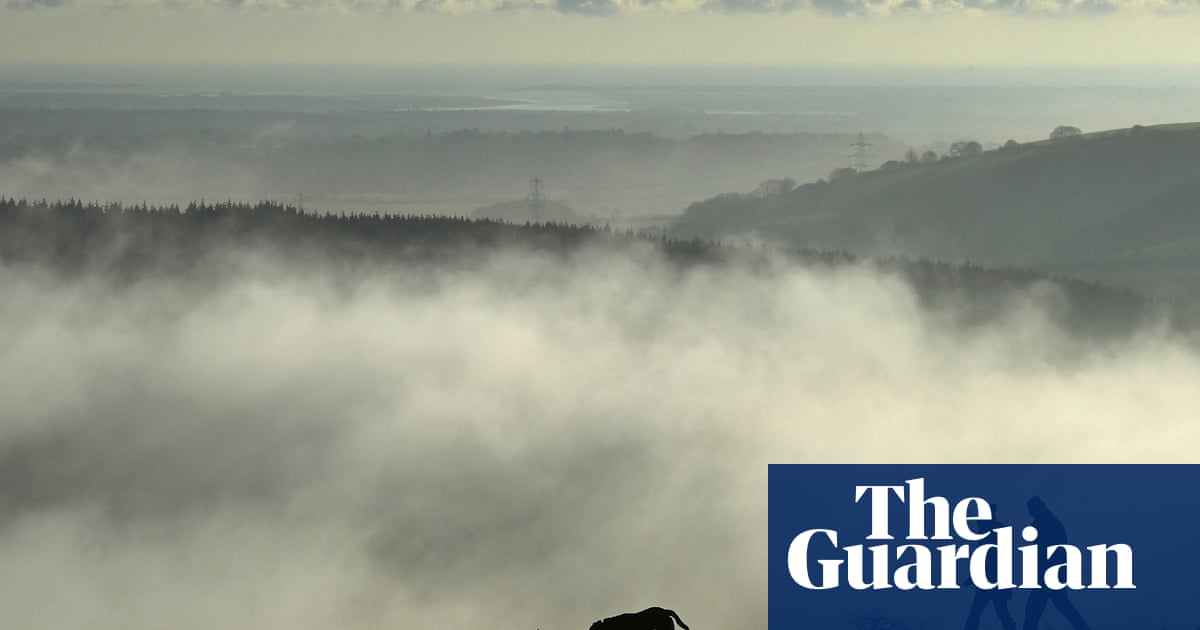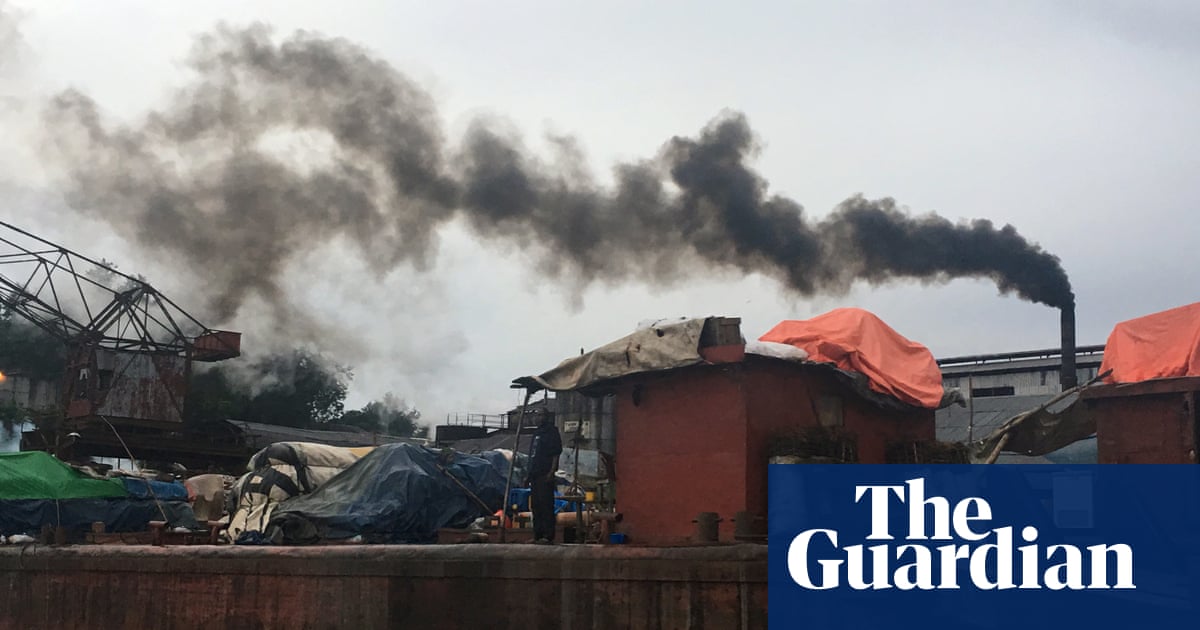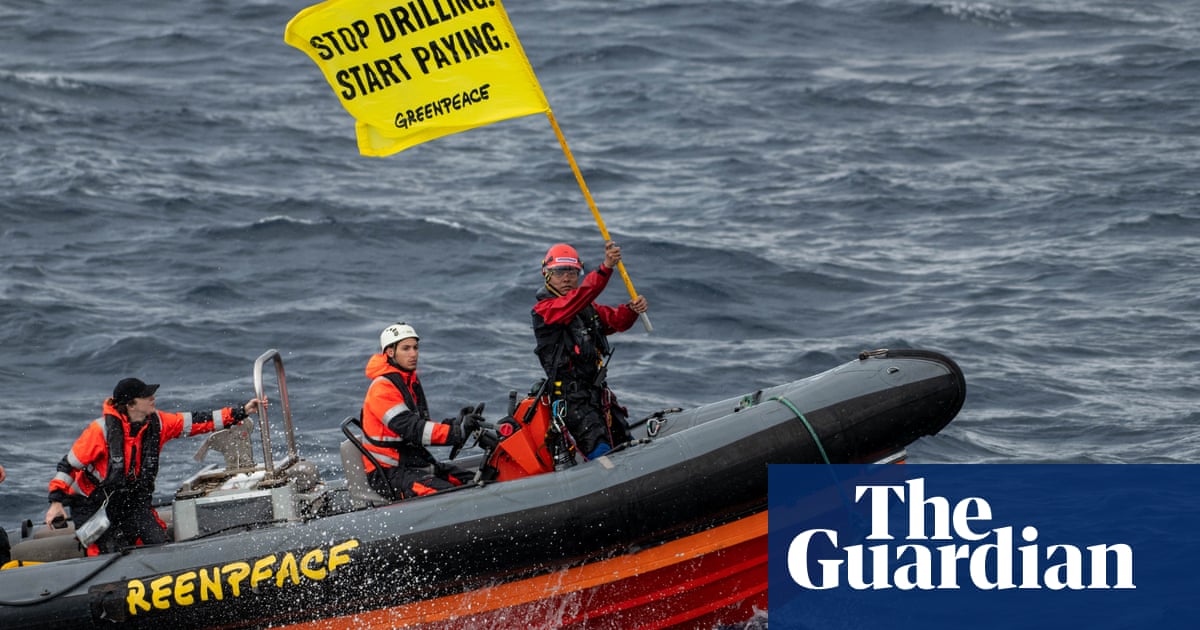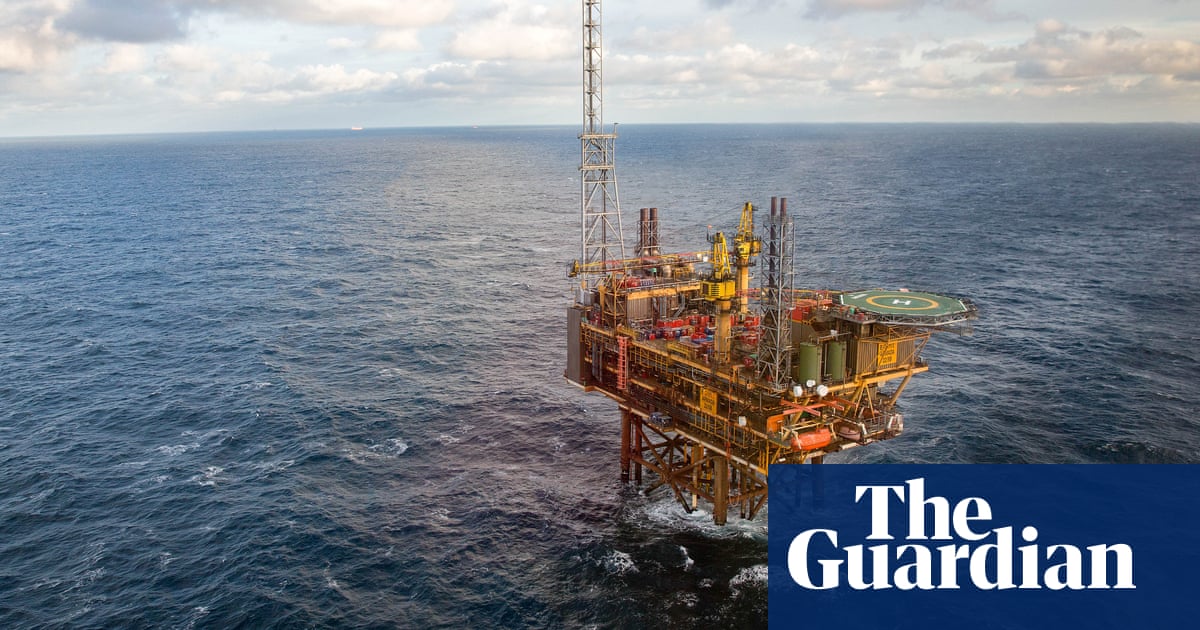
In 2019, France’s best known climate expert sat down to work with its most feted graphic novelist. The result? Perhaps the most terrifying comic ever drawn.
Part history, part analysis, part vision for the future, World Without End weaves the story of humanity’s rapacious appetite for fossil fuel energy, how it has made possible the society people take for granted, and its disastrous effects on the climate.
Among French readers it was an immediate smash hit, selling more than 1m copies so far, becoming the country’s top-selling book in all categories in 2022 and hailed as “one of the most brilliant summaries of climate issues ever written”.
But its controversial solutions provoked a backlash from some quarters. The criticisms now seem set to follow the book into the anglophone world, where it appears next week in print in English for the first time.
When Christophe Blain began work on World Without End, he was already France’s most celebrated comic book artist and a recipient of international awards. He was in the enviable position of being able to choose any creative project.
He chose to call Jean-Marc Jancovici, one of France’s foremost climate science communicators. “I was frightened,” said Blain, in an interview with the Guardian. “I realised that the climate change was a reality. When I’m frightened I have to move – I can’t stay still, I have to jump in the action. And the action was to call Jean-Marc and tell him let’s make a book together.”
It was an opportunity for which Jancovici, already author of eight books on climate breakdown and energy transition, whose online lectures on the topics had been viewed millions of times, had been waiting.
“I felt very excited because it was a way that I knew would work for sure to get to an audience that doesn’t read books and who is not in my ecosystem,” he said. “It was a way to reach people that remained out of reach before, because you can add a zero to the number of copies for a graphic novel compared to a classical essay.”
Together, Blain and Jancovici devised a revealing deconstruction of the human-made processes that have pushed the planet to the brink of climate collapse, full of incredible observations, such as the fact that the effects of fossil fuel energy mean it is as if each human had, on average, 200 enslaved people working for them, or that, without machines, 1.5 trillion people would have to work to produce the same amount of energy.
There are also painful truths, including the little acknowledged fact that 35% of the world’s electricity is still produced from coal – the dirtiest of all fossil fuels.
But the book’s most powerful element lies in its use of a series of evocative images to decode concepts of energy production and consumption, and its burden on our planet.
Most notably, the fossil fuel economy, and all the advantages it has given human civilisation, is depicted as Iron Man (or rather Armour Man in the UK version, for reasons of copyright), an exoskeleton donned by humanity to expand its powers to near omnipotence.
The image of a superhero came naturally, Jancovici said. “As our superpowers come from all the machinery that we have in the world, mixing up the human shape and the idea of machines, well I could either choose Terminator or Iron Man, and I chose Iron Man. It’s a little bit more friendly.”
But Iron Man has a problematic counterpart, the spectre – quite literally in World Without End – of greenhouse gas pollution. “One of the metaphors we could have used in the book is the history of Faust,” Jancovici said. “First you enjoy, then you pay. It’s exactly what fossil fuels are bringing us.”
What sets World Without End apart from other examinations of climate breakdown is this look at the deep connection between energy abundance and the scientific and social progress it has enabled – comforts that cannot easily be abandoned – and the breakdown of our planet’s climate.
“The new part in the book, in my view, is that one,” said Jancovici. “It’s to put in just one piece something that gathers both knowledge on the physical flows of our productive system and our way of living, and a major externality, which is climate change.”
And that is also where its most terrifying aspect arises. World Without End describes a situation where the cataclysmic effects of climate change are beginning to grip human civilisation just as people can no longer use, and indeed are begin to run out of, the energy sources needed to cope with them.
The very name of the book can be seen as a précis of this paradox, Jancovici said. “It was Christophe’s idea, and I thought that it expressed very well the romantic idea of a never-ending story of growth and abundance, which is exactly what fossil fuels brought us for a while. Of course the understatement in the title appears to anyone: the world is not without end.”
That is where solutions come in – as well as the book’s most-contested claim. Jancovici and Blain downplay the potential of renewable energies such as wind, solar and hydropower. Nuclear power, they say, is the only way to decarbonise power grids fast while maintaining the benefits of industrial society.
It is a position that led to criticism, even in France, which already gets most of its electricity from nuclear. Renewable energy advocates accused the book of a “pro-nuclear bias”, pointing out Jancovici’s connections to the energy industry through his think tank the Shift Project.
Some campaigners even took their actions into bookshops, masquerading as representatives of the French publisher, Dargaud, to persuade staff to insert an anti-nuclear “erratum” to copies.
Jancovici said that if the book were to be rewritten there would be less material on nuclear power, but not because he regrets it – he thought their position had been vindicated by the energy crisis provoked by Russia’s invasion of Ukraine. “Part of the debate is over in France,” he said. “Anti-nuclear positions are not at all as mainstream in the media as they were five years ago. We owe that to Putin, because it has been a general movement all across Europe.
“On renewable energies what we wanted to say is not that they are totally useless, or without interest. It’s that they by nature do not have the properties of dense and dispatchable fossil fuels, and that, of course, we can do something with them. But we won’t do with them what we believe we can do, which is sustain an industrial civilisation on renewable energies alone.”
Blain and Jancovici attributed the book’s phenomenal sales to its shareability, its offering an easy and discrete way for people who cared about the climate issue to use it to explain the problems to others. “When the book was released, what I expected was the book would become viral. And it became viral,” Blain said.
Jancovici added: “What happened is that the book was designed to be given, and this strategy became effective.”
The authors’ hope is that World Without End will precipitate a change in consciousness around energy consumption. “The book is made to understand the problem, to understand the orders of magnitude,” Blain said.
“To understand what it costs, really, what it means, what is behind the scenes. When you understand that, it’s impossible to think the same way as before … You can see the things around you differently. You imagine your future life differently, for you, or your children, for your parents, for anybody. You know that the world will be different.”
Or, as Jancovici put it: “It’s the kilowatt hours, stupid.”
World Without End is published in the UK on Thursday by Particular Books.












